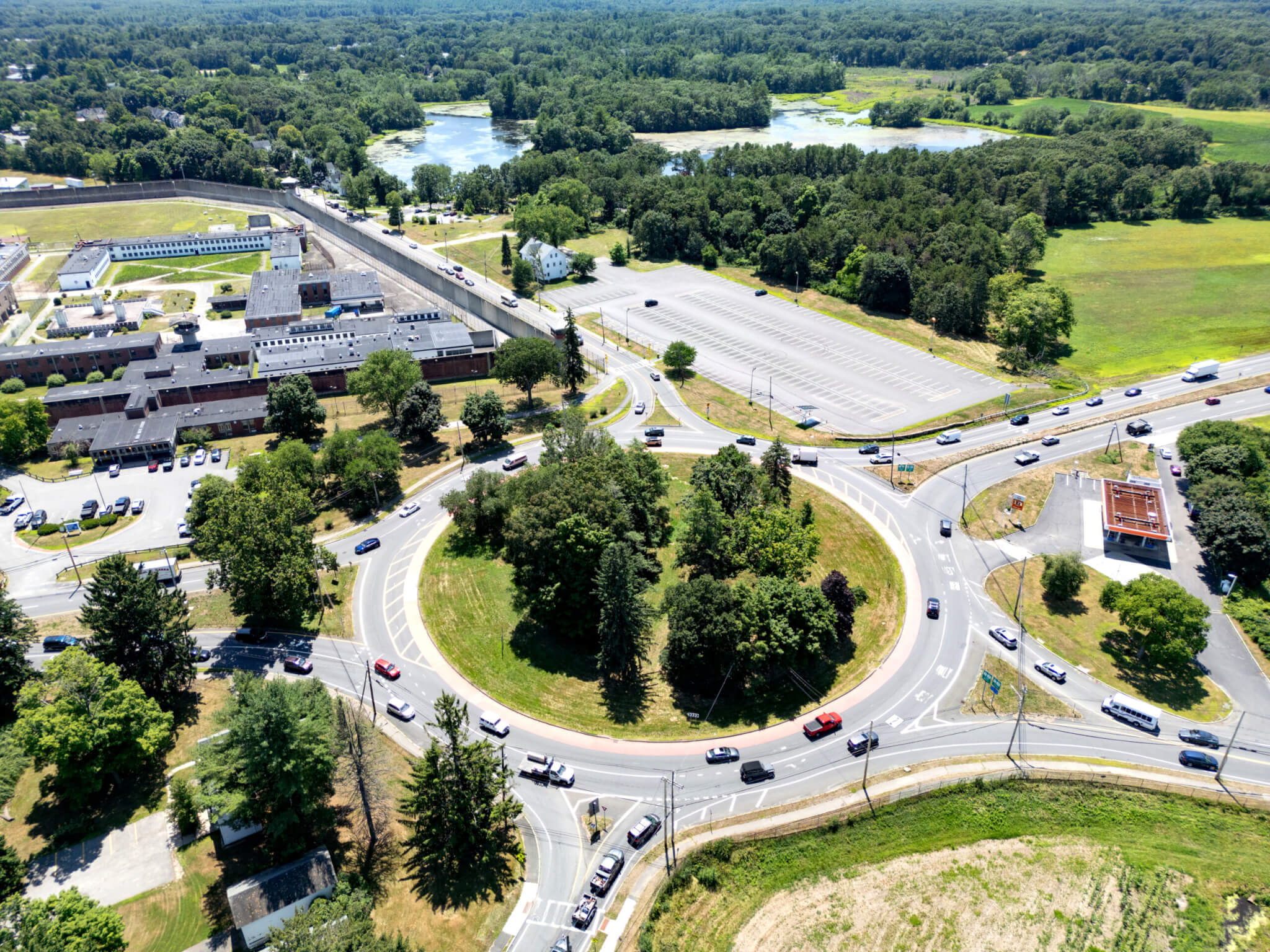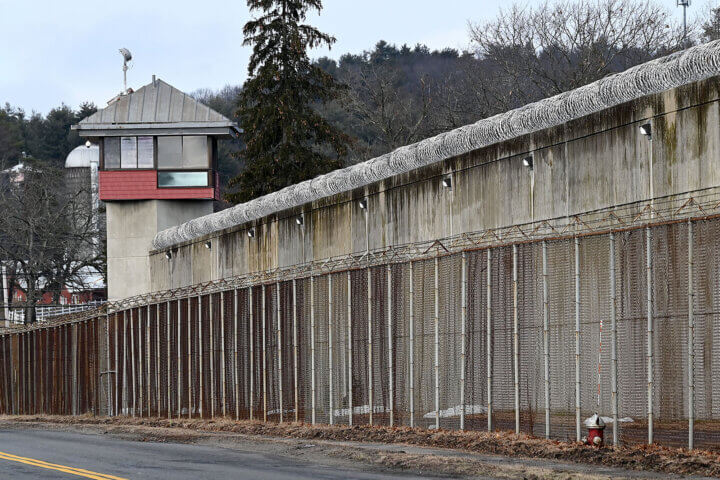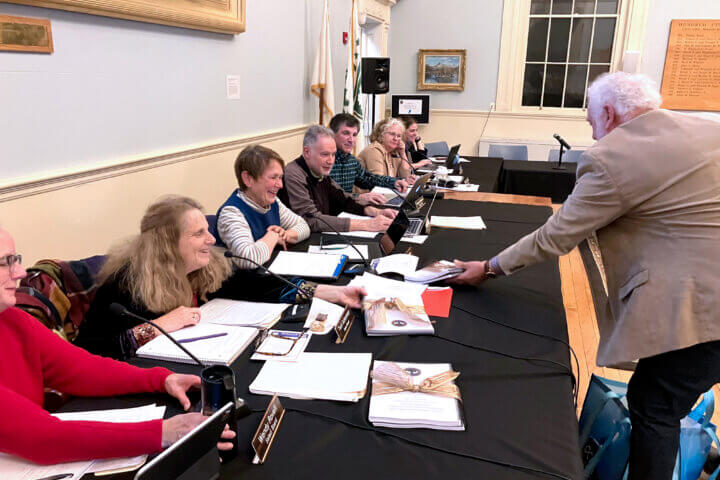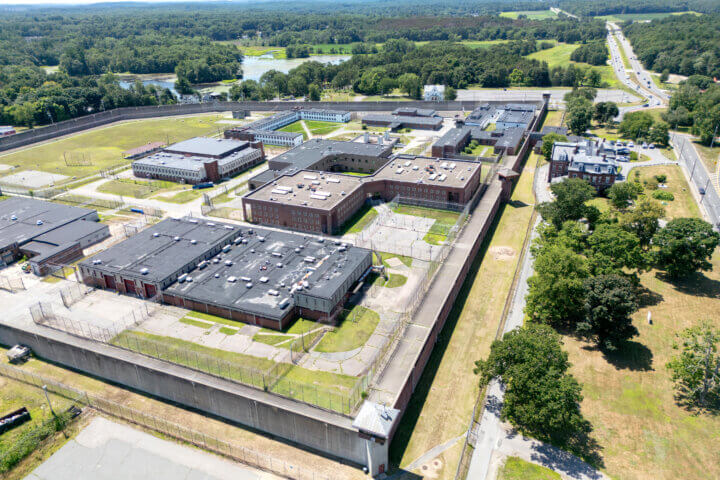By Erin Tiernan — Erin@concordbridge.org
From affordable housing to university dorms, municipal buildings to restaurants and retail, ideas abound for what could replace the now-shuttered MCI-Concord prison.
If Gov. Maura Healey gets her way, housing will next grace the 37-acre tract abutting the Route 2 rotary.
What developers are ultimately permitted to build on the prime real estate, which is soon to be up for sale, remains under debate.
First public hearing unfolds
State and local officials guiding the redevelopment process are inviting the public to offer their ideas on September 12 at the first of at least three public hearings to help shape the process. The state Division of Capital Asset Management and Maintenance will host the meeting alongside town administrators and the MCI-Concord Advisory Board.
The hybrid meeting will be held both online via Zoom and in person starting at 7 p.m. Thursday at the Town House, 22 Monument Square.
DCAMM is leading a planning and public engagement process that is outlined by legislation. It involves a robust planning study and public outreach ahead of any redevelopment deals.
The agency said it intends to steer development in a way that will “further the Commonwealth’s housing production and decarbonization goals, as well as to serve local needs.”
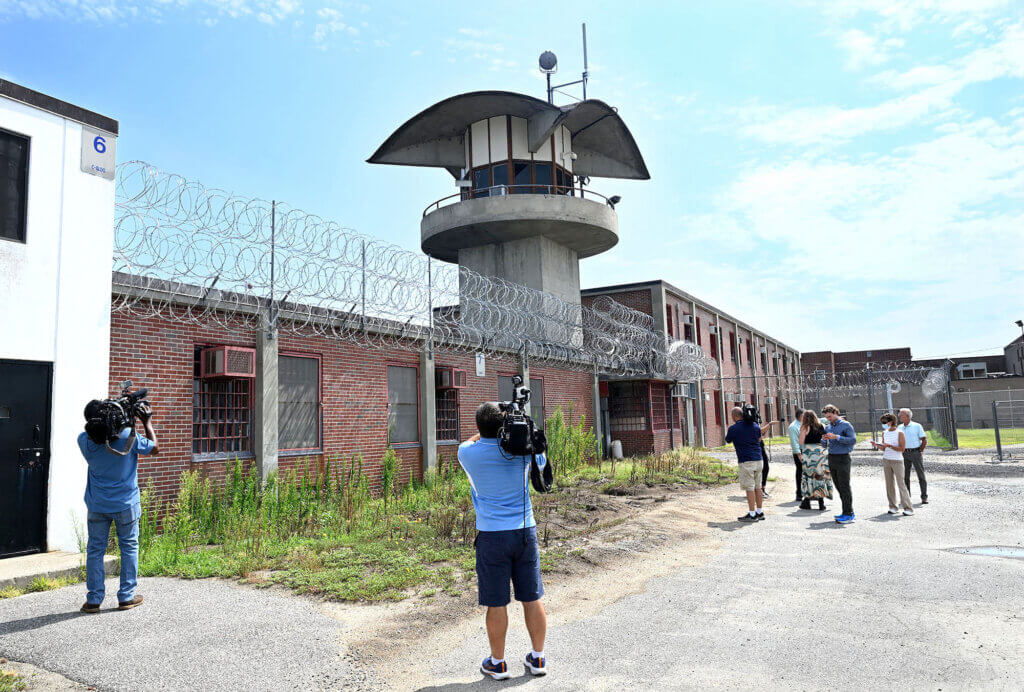
Town interests in focus
Deputy Town Manager Megan Zammuto told the 11-member MCI-Concord Advisory Board in mid-August that her staff was working with DCAMM on the hearing agenda, which she described as “the first opportunity to discuss this really, in earnest, with the community.”
Advisory Board Co-Chair Dan Gainsboro said he expects DCAMM to hold more than just the mandated hearings over the next year or so as the planning process unfolds. “There will be multiple meetings over these three for the public to give input,” Gainsboro said.
The advisory board meets publicly on the first and third Mondays of each month, and Gainsboro said he wants the public to understand Concord’s role in the planning.
The state intends to sell the property for reuse after decommissioning and planning are completed — which state officials have said would take around 18 months.
Healey announced in January that she planned to close MCI-Concord — in part due to declining state prison populations and the 146-year-old institution’s mounting maintenance needs. The Democratic governor kept her promise, and prisoners were moved out by the state’s fiscal year end in June.
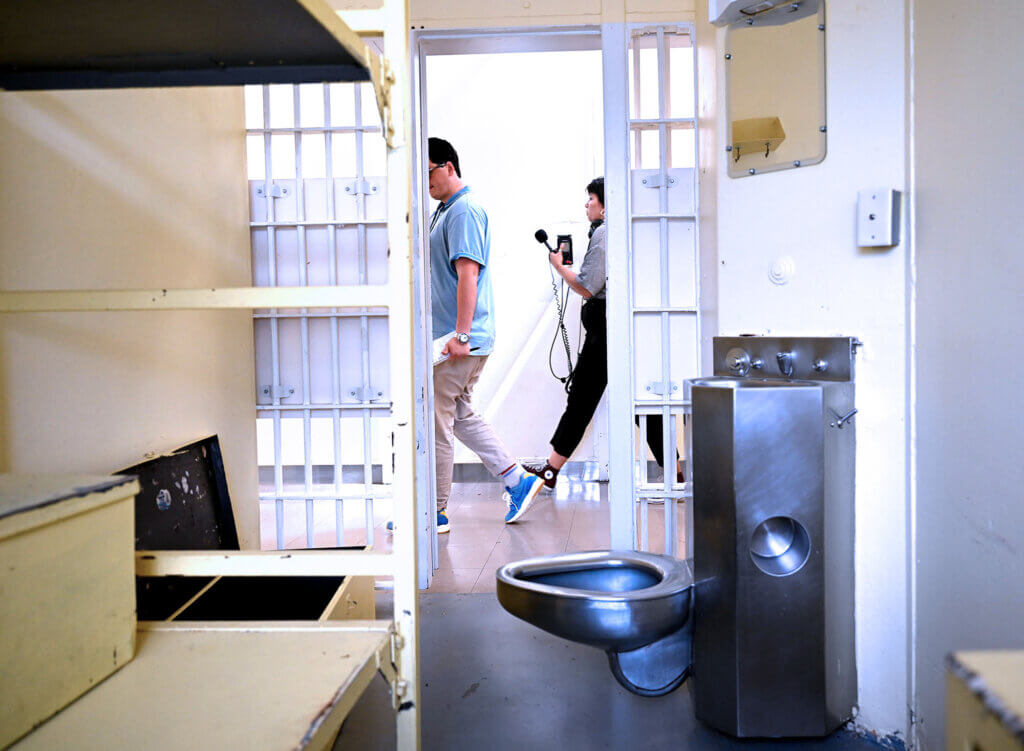
The planning process basics — including the requirement of at least three public hearings and offering the town the prison’s wastewater treatment facility, which can serve future development — are laid out in the legislation included in the state’s Fiscal 2025 budget.
The MCI-Concord Advisory Board is breaking down its planning operations into three subcommittees: Legal and Government Affairs, Community Outreach and Land Use, and Planning and Strategy. Member assignments were announced August 26.
Gainsboro told members that the September 12 meeting “would be a great opportunity to share with the public so that they understand how we’re organizing and dividing up the work.”
Remote participants can click here to join the Zoom webinar on Thursday at 7 p.m.
The webinar ID is 891 9922 6779.
To join by phone, call (646) 931-3860.
MCI-Concord redevelopment timeline
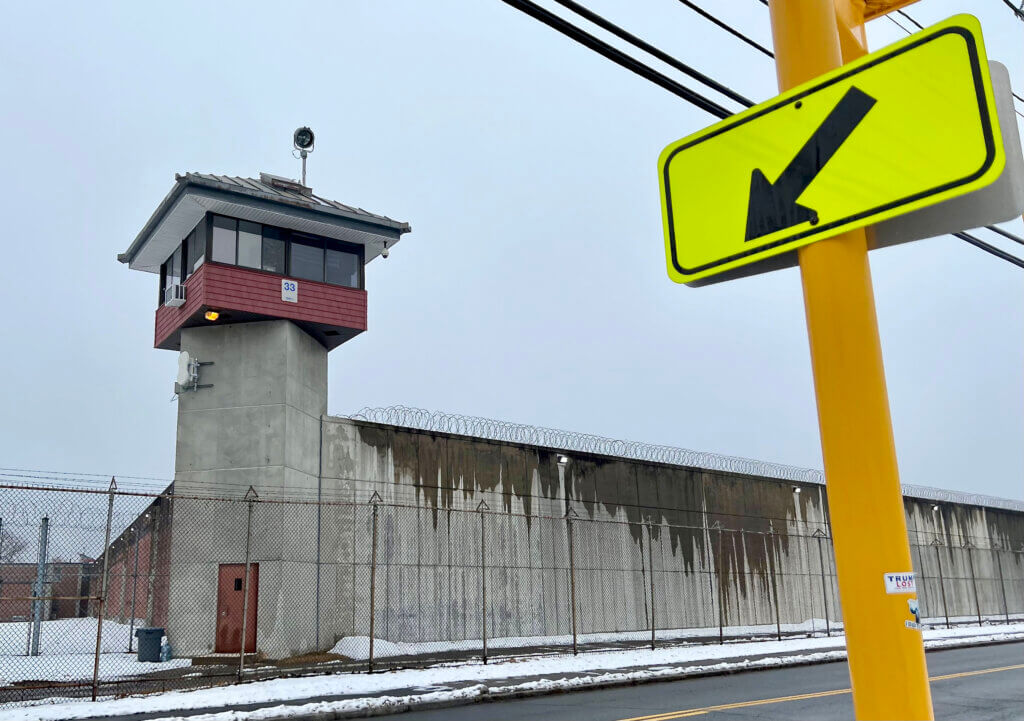
July 29, 2024: State budget for Fiscal 2025 signed into law, triggering closing of MCI-Concord and outlining planning timeline for redevelopment.
August 28, 2024: Deadline for DCAMM offer to Concord to purchase site’s wastewater treatment plant.
September 12, 2024: DCAMM hosts first of three hybrid public hearings in Concord.
February 25, 2025: Concord’s deadline to purchase or lease MCI-Concord wastewater treatment plant.
Late 2024/Early 2025: DCAMM to hold two more public hearings. The third must be at least 60 days before release of the final planning study.
Late 2025/Early 2026: DCAMM commissioner expected to file planning study at least 60 days before selling MCI-Concord land.
2026: DCAMM expected to sell, lease, or transfer the former prison property for redevelopment.
Source: State legislation; state and town officials


